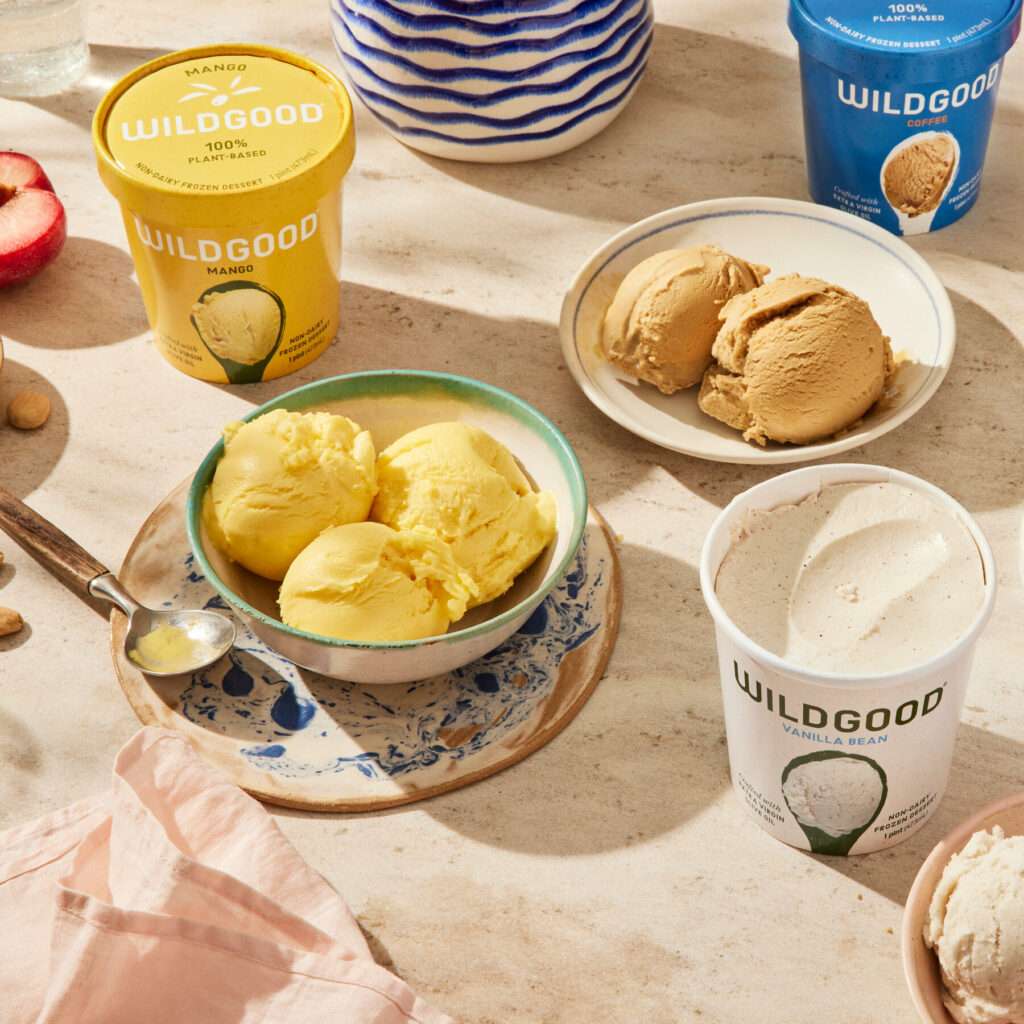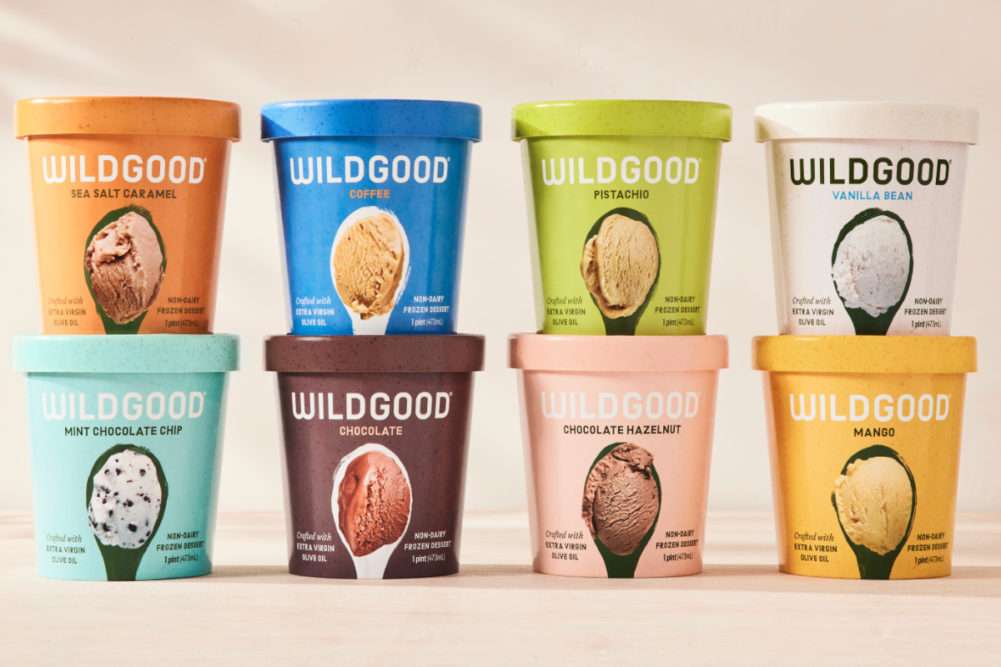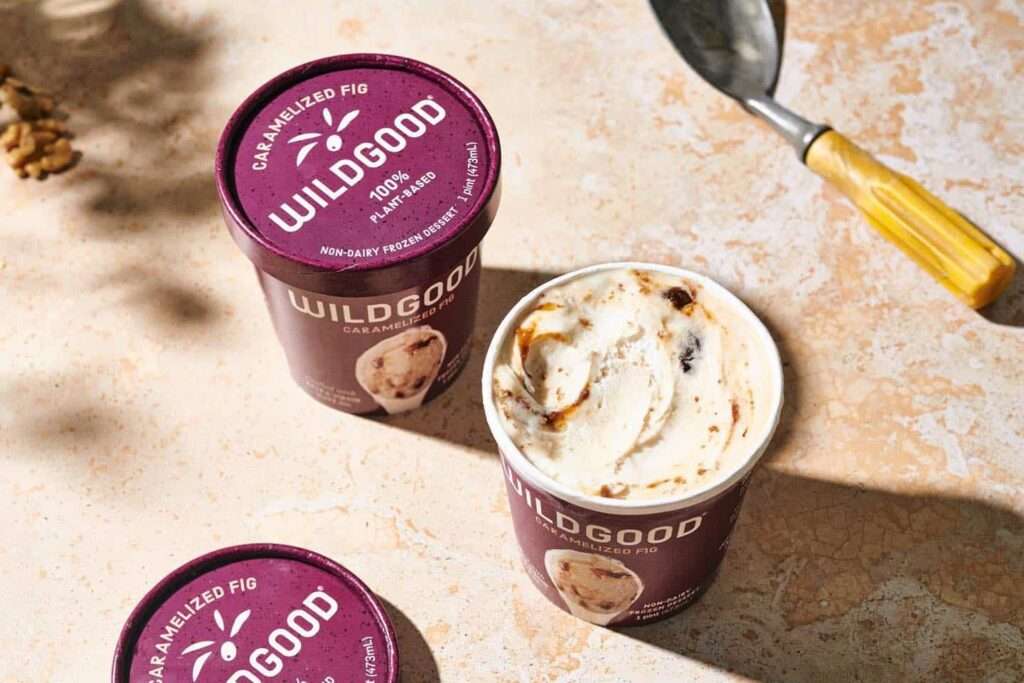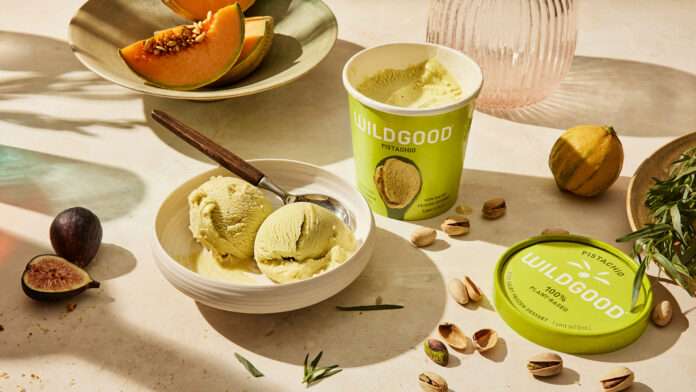Ice cream gets a surprising twist that’s sustainable and delicious: olive oil instead of dairy.
Our love affair with frozen treats dates back long before tubs of Ben & Jerry’s dominated supermarket freezer aisles and ice cream trucks defined summer. Alexander the Great reportedly ate snow covered with honey and nectar. The Romans trekked up to the mountain tops for fresh snow, which they covered in sweet fruits and juice. Marco Polo introduced gelato’s predecessor to Italy in the 13th century. And a few hundred years later, England and France were enjoying “Cream Ice” which saw milk, cream, eggs, and sugar frozen to creamy perfection. By the middle of the 17th century, ice cream, as it became known, was a treat widely available.
Ice cream’s early Italian roots may not have included olive oil — a regional staple — but it’s one surprisingly suited for the cold and creamy concoctions that delight both young and old to this day, giving the popular treat an ethical and sustainable makeover with health benefits to boot.
Wildgood olive oil ice cream
Olive oil is emerging as a sustainable and healthier substitute to the dairy-based ice cream of centuries past thanks to Wildgood, a Vermont-based ice cream company started by Greek ice cream maker Sotiris Tsichlopoulos.
The company turned its attention away from dairy and away from dairy successors such as soy, nut, and oat-based frozen desserts, and looked to olive oil instead with the aim of creating the best-tasting alternative to dairy-based ice cream. It’s the first major ice cream brand to feature olive oil as a base.

Its creamy desserts which include Chocolate Hazelnut, Mango, Pistachio, Caramelized Fig, Vanilla Bean, Coffee, Mint Chocolate Chip, and Chocolate — all made with an olive oil base — have earned the support of Gary Hirshberg, co-founder and former chief executive officer of Stonyfield Farm, Orgain founder Andrew Abraham, and celebrity chef Bobby Flay.
“I started selling dairy-based ice cream in my first store in Athens, Greece, 13 years ago, but shortly after it became apparent to me that people were seeking non-dairy alternatives,” Tsichlopoulos told Food Business News in 2021. “For example, when I created a non-milk-based chocolate flavor it would sell out within an hour of opening my store. I even had customers calling me to order more over the phone. Knowing this, I set out to create the non-dairy ice cream of the future by using a healthier fat alternative, extra virgin olive oil, as the main ingredient. Olive oil has long been a part of Greek culture and known as one of nature’s ‘good fats.’”
According to Wildgood CEO Shay DiCocco, the company’s mission since day one has been to create a plant-based ice cream that is “both delicious and more sustainable than traditional ice cream.”
Sustainability
Proving deliciousness may be more nuanced, but sustainability, it turns out, was somewhat easy to measure. The company recently conducted a Planet FWD life cycle assessment (LCA) to better understand its carbon footprint.
“The Wildgood team is setting a new standard for transparency in their industry, and this assessment will help ice cream lovers make more informed decisions,” Julia Collins, founder and CEO of Planet FWD said in a statement. “I admire Wildgood’s dedication to improving its sustainability while maintaining product quality. We look forward to continuing to empower the team with data that drives innovation.”

That LCA found Wildgood’s emissions to be 80 percent lower than conventional dairy-based ice cream. The LCA also found Wildgood’s olive oil-based ice cream to be far more sustainable than typical dairy-free bases; Wildgood’s ice cream is 38 percent lower than coconut milk-based ice cream and 25 percent lower than oat milk ice cream.
“While we anticipated our findings would confirm that our greenhouse gas emissions are lower than other dairy and non-dairy ice creams, we were excited to see this confirmed in Planet FWD’s findings and how much lower our emissions really are,” DiCocco told Ethos via email.
Low in calories, high in flavor
The ice cream is also surprisingly lower in calories than conventional ice cream —about 35 percent fewer calories in total.
“It takes surprisingly little of our core superfood ingredient, extra virgin olive oil, to give Wildgood a rich and creamy texture with just a fraction of the calories,” says DiCocco. “Olive oil is considered to be one of the healthiest fats, and our ice cream has incredibly low saturated fat thanks to the olive oil.”

Sustainability metrics are all fine and good, but what’s top of mind for every consumer: how does it taste? Is olive oil ice cream good enough to send Romans up into the snow-covered mountains? Would Marco Polo feel the need to protect the recipe as he made the treacherous trek along the Silk Road?
“Every person’s feedback is unique, but overwhelmingly the response is that EVOO [extra virgin olive oil] gives Wildgood its silky smooth texture while allowing the flavor ingredients to shine,” DiCocco says. “Wildgood delivers the bright flavor of a sorbet with the creaminess of a premium gelato. The EVOO flavor is barely detectable.”
Related on Ethos:


